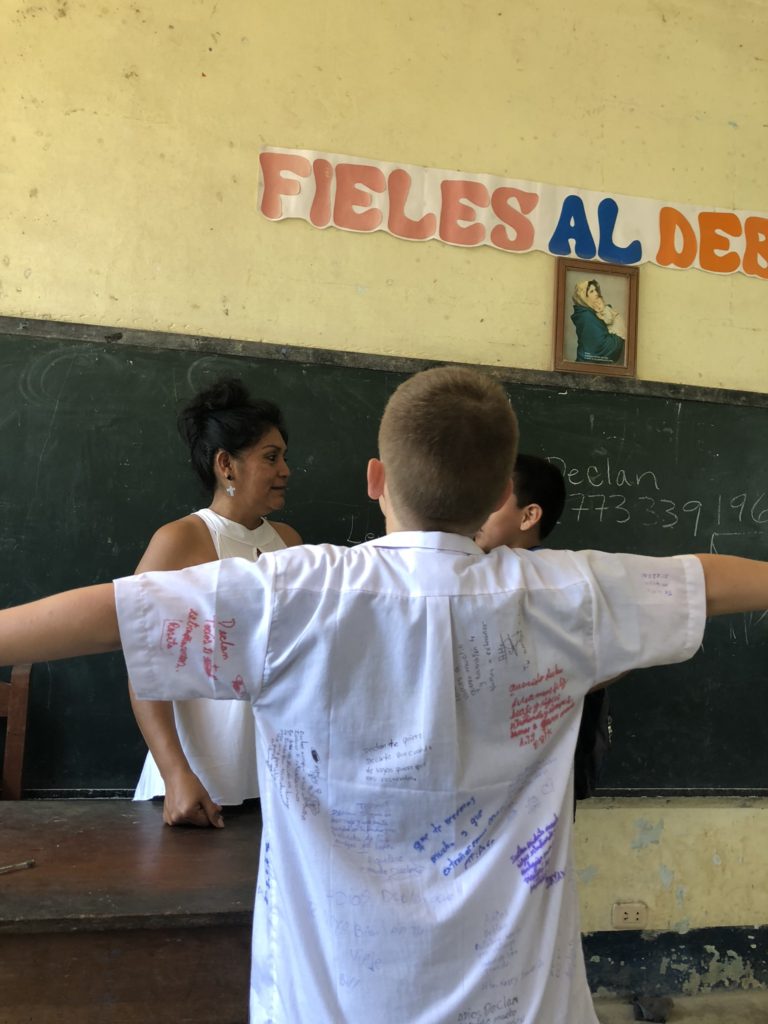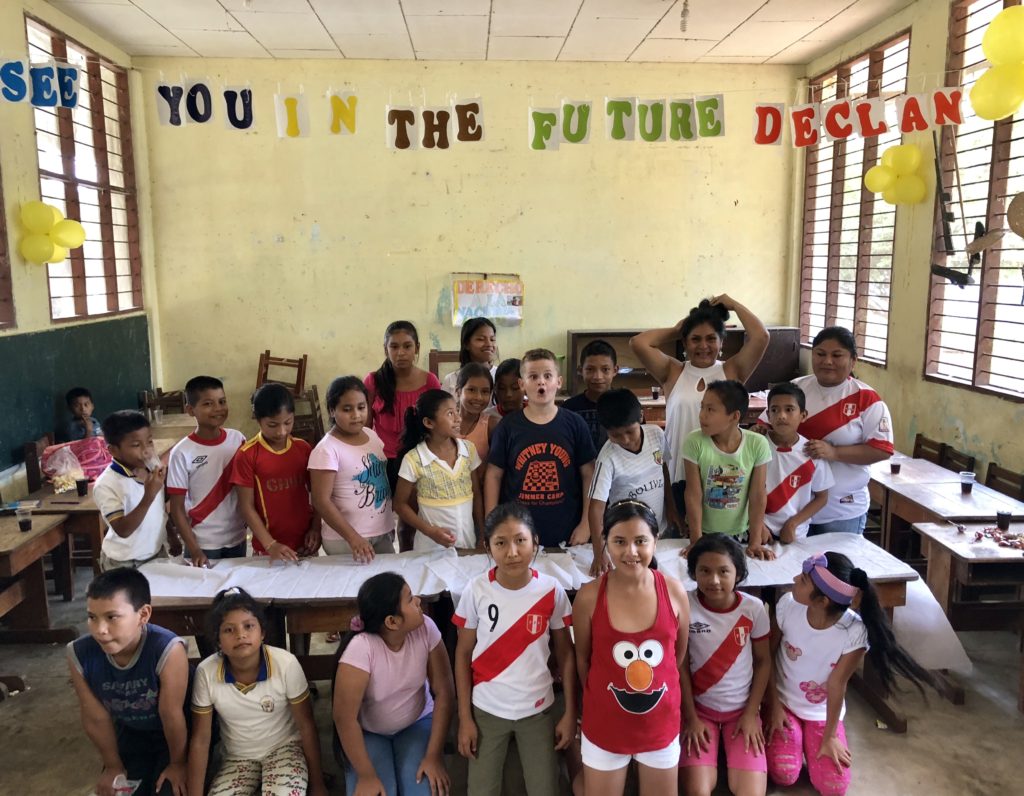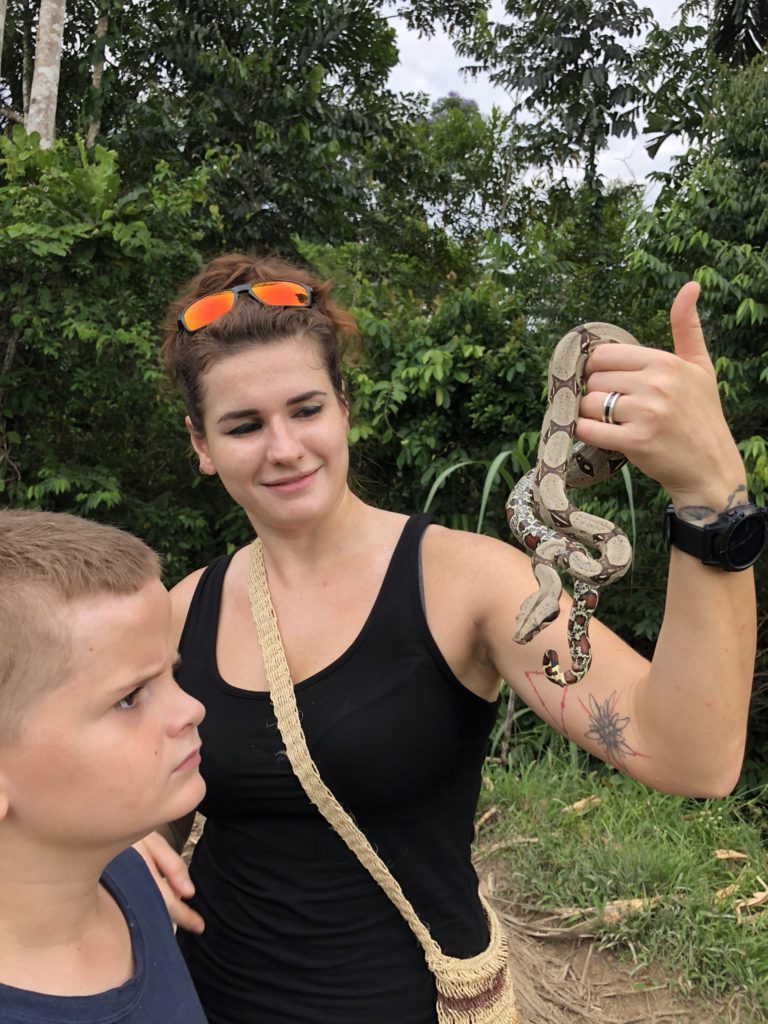The “Quinto A” class at
Santa Clotilde is such a community. As you walk down the street, all the children tell you “Buenos dias” or “buenas tardes”. Very different from the anonymity of the city. And I love the way they do community problem-solving. I think that part of the reason that some of the young doctors from Lima have had difficulties here is that things seem to be decided by consensus-building rather than top-down directive. I was very impressed by one meeting with
At the meeting were the various members of the Comite, the administrative committee of long-term employees of the CSSC. Robin our maintenance guy was there, Julio the pharmacist, Chelita the secretary/HR person, and me. Along with Zenith, Robin’s wife, who works for the Center for Women’s Emergencies. We heard the testimony of the two adult children; Chelita suggested setting up an account so that 75% of Linorio’s salary would go directly to the account of one of his children. His salary is S/1200 per month, about $375.
But of course we had to discuss this idea with Linorio, so we sent someone to look for him and brought him into the meeting.
“Linorio, estas mal,” Chelita told him. “You have five children; you cannot give them 50 soles for a month’s worth of food. You have a wonderful daughter; she came from Lima to take care of the younger children after their mother died; you can’t assault her.”
“Linorio, we are not saying you have to be single for the rest of your life, but show some respect to your late wife,” said Robin.
“Linorio, you cannot spend so much money on another woman. You cannot spend so much money on drink. Your salary is very small, and you have responsibilities,” said Julio. “Who is going to take care of you when you are old? You must be kind to your children and treat them right.”
“Linorio, we are going to give 75% of your salary directly to your children,” said Chelita. “Fine,” said Linorio. “I don’t have a problem with that.”
“It is not enough to not have a problem with that. You have done wrong, Linorio; you have hurt your children. Look them in the eyes and tell them that you are sorry; hug them and tell them that you love them.”
At first Linorio’s children did not want to look him in the eyes. They avoided his eyes, and his touch. But when he began to speak, “forgive me, forgive me, I love you, I have done wrong, I will do better, ” they began to cry, and to embrace him.
“Good,” said Chelita. “This is a step. But we will be watching, Linorio. If we come to hear that you are drinking too much, that you are coming drunk to work, that you are mistreating your children, we will fire you. And we will give your job to your 18 year old son. We will be watching you, Linorio.”
And the meeting was ended. I told Ekaterina about the meeting; she was very impressed. “It sounds completely sensible,” she told me. “I wish they could have those kinds of sensible meetings back home.
And then, all too soon, it was time to take the
As we stop to pick up passengers on our way to Iquitos, the names of the various communities on the Napo River fall into place as I remember the patients who have made their way in peke-peke to Santa Clotilde.
Porvenir: the premature twins who kept me up all night with sepsis and apneic episodes. Fortaleza: Nezly, the




What a fabulously rich experience you’ve had!! It’s been such a pleasure following your adventures and imagining how this will change Declan’s worldview.
Comments are closed.